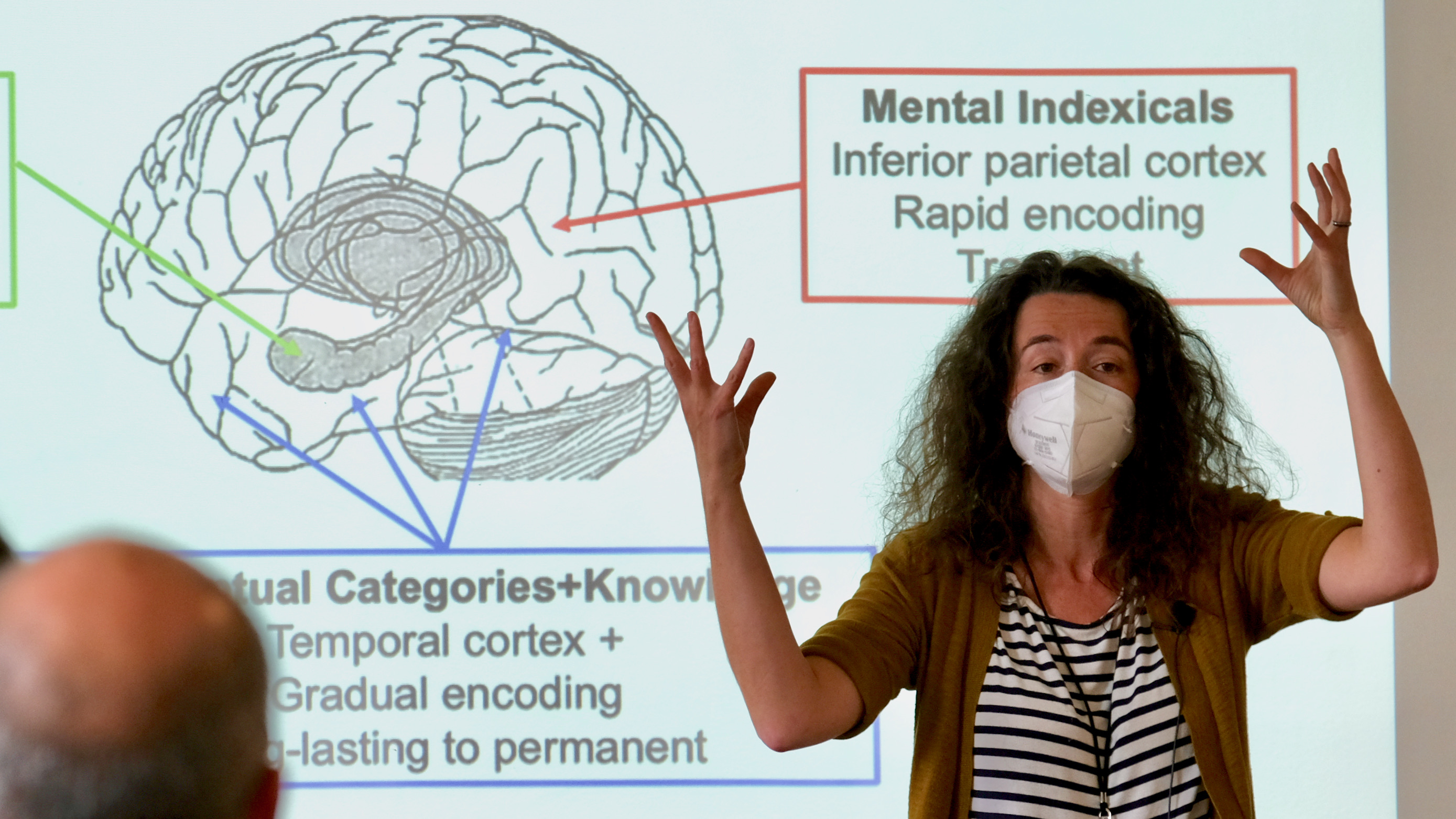Ellen on octopuses and sharks at NYU
November 10, 2022

Squeezing sentence understanding into hippocampal memory.
November 10, Ellen is at NYU giving a talk at the Center for Language, Music and Emotion, giving a talk on "Octopuses and sharks: Squeezing sentence understanding into hippocampal memory." Abstract below.
For thousands of years, it’s been remarked that most natural language sentence meanings have a ‘subject - predicate’ or ‘topic - comment’ organization—an organization that gifted writers intuitively play with to create interpretive nuance and stylistic surprise. However, this fact doesn’t seem to follow from the hierarchical structure of language, nor from theories of attention. Here I’ll use this case to illustrate how human languages—tools for conveying and acquiring knowledge about the world—are necessarily shaped by the quirks of neural memory systems that evolved to acquire knowledge about the world through other means. Listeners and readers would like to rapidly and lastingly encode the knowledge that sentences convey. For its original purpose in supporting goal-directed navigation the hippocampus developed a rapid, discrete, long-lasting encoding mechanism, but with a characteristic representational format centered around individual ‘places’. In order for language users to leverage the speed and specificity of this knowledge circuit, sentences have to indicate how to ‘translate’ their meanings into the hippocampus’s individual-centered format, and it is these cues to translation that are provided by sentence subjects/topics.

